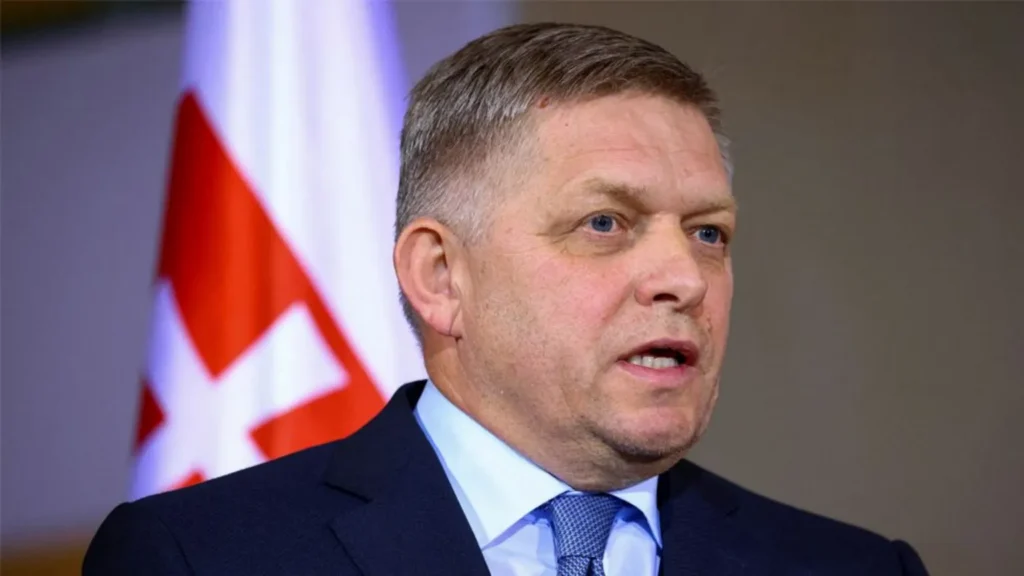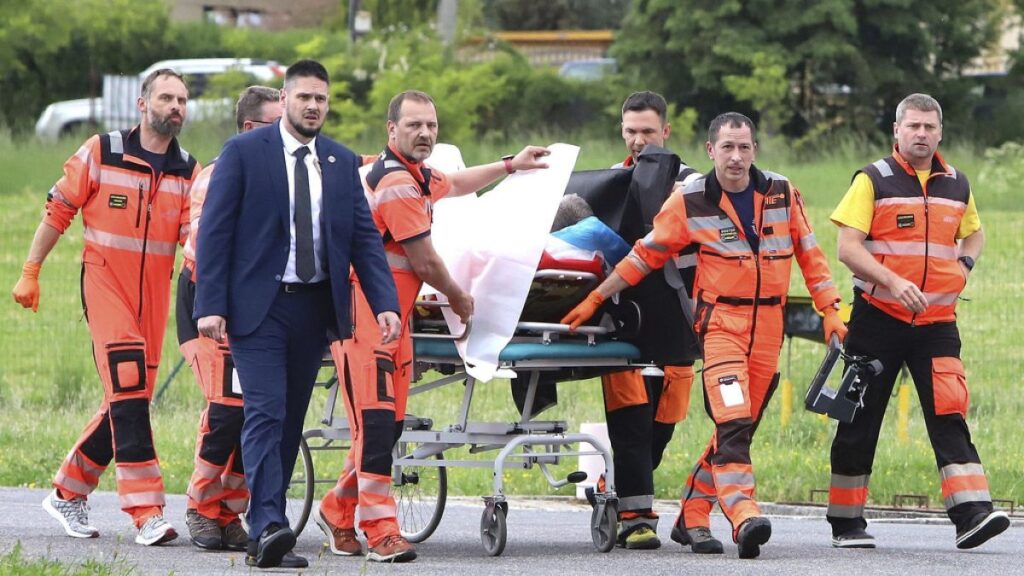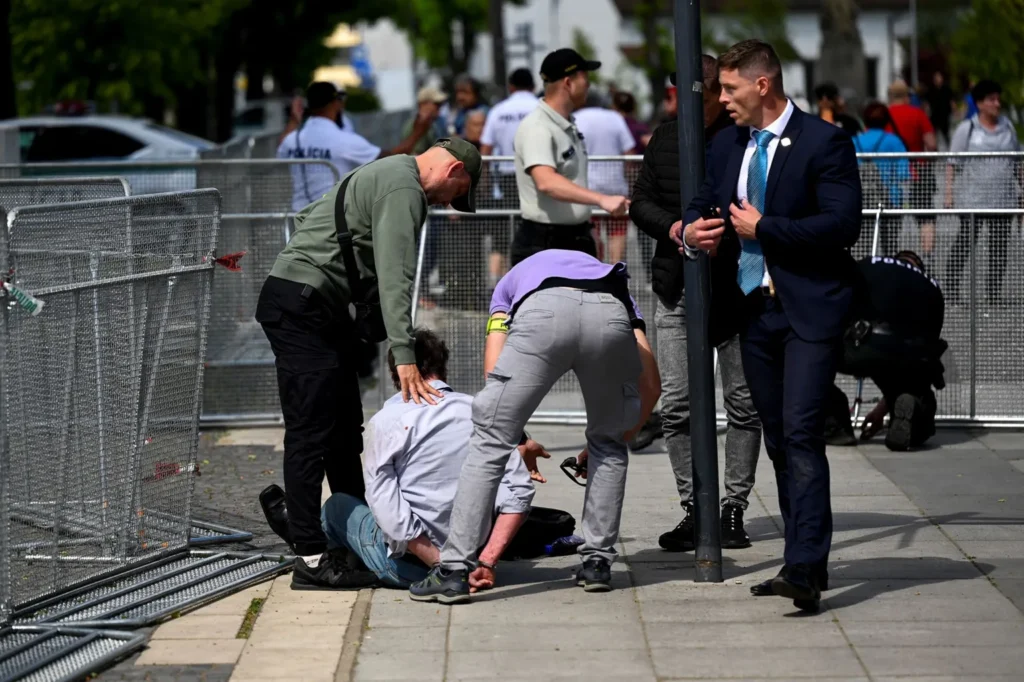Robert Fico

In a shocking turn of events, Slovakia’s Prime Minister, Robert Fico, became the target of an assassination attempt outside a cultural community center where a government meeting had recently concluded. The assailant, armed with a gun, fired multiple shots at Fico before being apprehended by security personnel. The incident left the nation in turmoil, raising questions about the state of democracy and political discourse in Slovakia.
The attack, captured on camera, sent shockwaves across the country and drew swift condemnation from world leaders. President-elect Peter Pellegrini, a political ally of Fico, expressed horror at the violence and attributed it to the growing political divisions within the nation. Indeed, Slovakia has witnessed heightened tensions in recent months, fueled by contentious policy decisions and widespread protests.
At the heart of the matter lies the deep-seated discontent with Fico’s leadership, particularly his populist-nationalist agenda and controversial policy initiatives. Since returning to power after last year’s elections, Fico has faced fierce opposition and mounting criticism for his handling of various issues, including relations with neighboring Ukraine and the proposed overhaul of the public broadcaster RTVS.

The motive behind the assassination attempt remains unclear, but initial reports suggest political motivations. The suspected assailant, identified as a 71-year-old writer and political activist, allegedly expressed grievances against the government’s policies and its treatment of state media. However, the full extent of his motives and intentions is yet to be determined.
In the aftermath of the attack, Slovakia finds itself at a crossroads, grappling with the ramifications of political violence on its democratic institutions. The incident has reignited debates about freedom of expression, the rule of law, and the limits of political dissent. President-elect Pellegrini’s call for unity and democratic discourse underscores the need for constructive dialogue and peaceful resolution of differences.

The international community has rallied behind Slovakia in condemning the attack and reaffirming its commitment to democratic values. US President Joe Biden denounced the “horrific act of violence” and pledged support to the Slovakian government. Russian President Vladimir Putin echoed similar sentiments, emphasizing that no justification exists for such heinous crimes. European Council President Charles Michel echoed these sentiments, emphasizing the importance of upholding democratic principles in the face of adversity.
As Robert Fico undergoes treatment for his injuries, the nation anxiously awaits news of his recovery. Regardless of one’s political affiliations, the attack on Fico serves as a stark reminder of the fragility of democracy and the need for vigilance against forces that seek to undermine it. Moving forward, Slovakia must strive to bridge its political divides and foster a culture of tolerance, dialogue, and respect for democratic norms.
In conclusion, the assassination attempt on Robert Fico represents a critical juncture in Slovakia’s democratic journey. It serves as a wake-up call for the nation to confront the challenges posed by political polarization and uphold the values of democracy, freedom, and justice. Only through collective effort and unwavering commitment to democratic ideals can Slovakia overcome this ordeal and emerge stronger as a nation.
